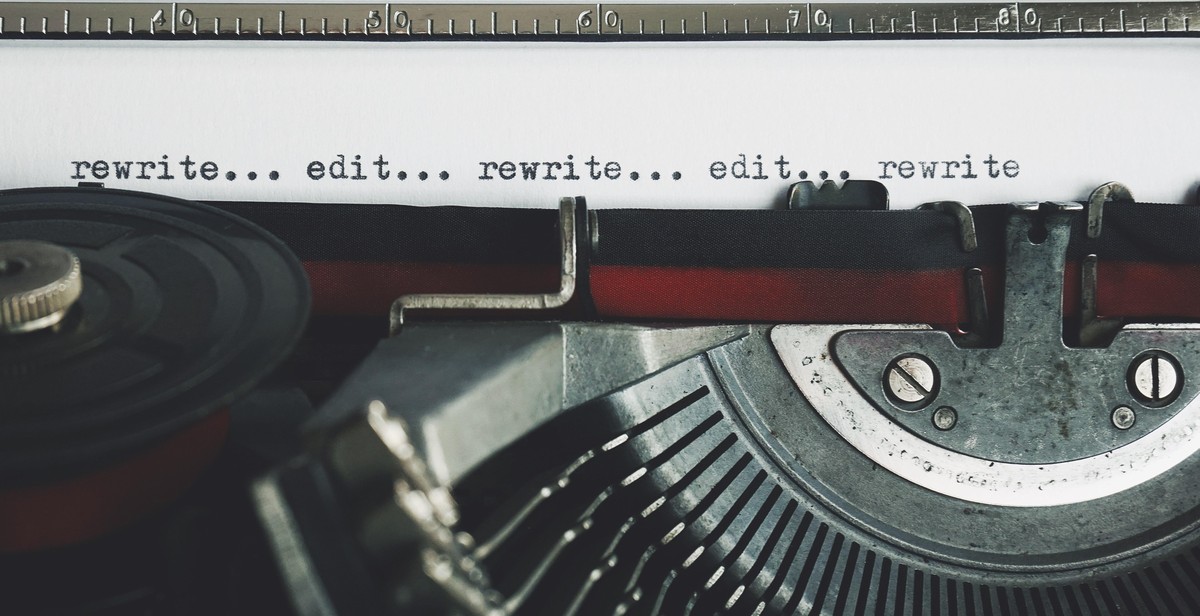How to Edit and Revise Your Writing: Tips for Polishing Your Work
As a professional article writer and content creator with over 10 years of experience, I know firsthand the importance of editing and revising your work. Writing is a process, and the first draft is never perfect. That’s why it’s crucial to take the time to review and refine your writing to ensure it’s polished and error-free.
The Benefits of Editing and Revising
Editing and revising your work can improve the overall quality of your writing, making it more engaging and compelling for your readers. Additionally, it can help you catch any spelling or grammatical errors that may have been overlooked in the initial drafting process. Taking the time to edit and revise your work also shows a level of professionalism and attention to detail that can set you apart from other writers.
Tips for Polishing Your Work
There are several tips and techniques you can use to edit and revise your writing effectively. Some of these include:
- Reading your work out loud to catch any awkward phrasing or errors
- Using spell-check and grammar-check tools
- Breaking your writing down into smaller sections to focus on one area at a time
- Getting feedback from others, such as a writing group or editor
By implementing these tips and making editing and revising a regular part of your writing process, you can create high-quality content that engages and resonates with your audience.

Why Editing and Revising is Important
Editing and revising are important parts of the writing process that should never be overlooked. Whether you are a professional writer or a student working on an essay, taking the time to review and refine your work can make a big difference in the quality of your final product. Here are some reasons why editing and revising are important:
Improves Clarity and Coherence
One of the main benefits of editing and revising your work is that it helps to improve the clarity and coherence of your writing. When you first write something, it can be easy to get caught up in your own ideas and lose sight of how those ideas are coming across to your reader. By taking the time to review your work and make edits, you can ensure that your writing is easy to understand and flows smoothly from one idea to the next.
During the editing process, it’s important to pay attention to things like sentence structure, paragraph organization, and transitions between ideas. If you notice that your writing is unclear or disjointed in any way, you can make changes to address those issues and improve the overall flow of your writing.
Eliminates Errors and Mistakes
Another important reason to edit and revise your writing is to eliminate errors and mistakes. No matter how careful you are when you first write something, there are bound to be typos, grammatical errors, and other mistakes that slip through the cracks. By going back through your work and carefully reviewing every sentence, you can catch those errors and correct them before your work is published or turned in.
During the revision process, it’s also important to pay attention to things like punctuation, spelling, and grammar. These may seem like small details, but they can have a big impact on the overall quality of your writing. By taking the time to make sure that your writing is error-free, you can ensure that your work is taken seriously and that your ideas are communicated clearly and effectively.
Conclusion
Overall, editing and revising are essential parts of the writing process that should never be skipped. By taking the time to review and refine your work, you can improve the clarity and coherence of your writing, eliminate errors and mistakes, and ensure that your work is taken seriously by your readers. So the next time you finish a piece of writing, be sure to set aside some time for editing and revising – your writing (and your readers) will thank you!

Tips for Effective Editing and Revising
Editing and revising are an essential part of the writing process. It’s through editing and revising that you can turn a first draft into a polished piece of writing. Here are some tips for effective editing and revising:
Take a Break
Before you start editing and revising your writing, take a break. Step away from your work for a few hours or even a day. This will give you a fresh perspective and help you see your writing with new eyes.
Read it Aloud
Reading your writing aloud can help you spot errors and awkward phrasing that you might not notice otherwise. When you read your writing aloud, you’re engaging different parts of your brain, which can help you identify issues that you might miss when reading silently.
Use Online Tools
Online tools like Grammarly and Hemingway Editor can help you catch errors and improve your writing. These tools can identify grammar and spelling mistakes, suggest better word choices, and help you tighten up your writing.
Get Feedback from Others
Getting feedback from others can be incredibly helpful when editing and revising your writing. Ask a friend, family member, or colleague to read your work and provide feedback. They might be able to spot issues that you missed or offer suggestions for improvement.
Consider the Structure
When editing and revising your writing, consider the structure of your piece. Is the order of your ideas logical? Are your paragraphs well-organized? Make sure your writing flows smoothly and makes sense.
Eliminate Unnecessary Words and Phrases
Eliminate unnecessary words and phrases when editing your writing. Look for repetitive words or phrases, filler words, and unnecessary adjectives or adverbs. Tightening up your writing can make it more concise and impactful.
Check for Consistency
Check for consistency when editing and revising your writing. Make sure you’re using the same tense throughout your writing, and that your formatting and punctuation are consistent. Consistency can make your writing more professional and polished.
By following these tips, you can effectively edit and revise your writing, turning a rough draft into a polished piece of work.

Common Mistakes to Avoid When Editing and Revising Your Writing
Editing and revising are crucial parts of the writing process that can help you improve the quality of your work. However, many writers make mistakes that can undermine their efforts. Here are some common mistakes you should avoid:
1. Not Taking Enough Time
Editing and revising require time and attention to detail. Rushing through the process can lead to overlooking mistakes and missed opportunities for improvement. Set aside enough time to thoroughly review your work, ideally taking a break between writing and editing to come back with fresh eyes.
2. Skipping the Editing and Revising Process
Some writers may feel that their writing is good enough and skip the editing and revising process altogether. This is a mistake, as even the best writers need to revise and edit their work to make it the best it can be.
3. Relying Too Much on Spell and Grammar Checkers
While spell and grammar checkers can be helpful, they are not foolproof. They can miss errors or suggest incorrect changes. It’s important to use them as a supplement to your own editing and proofreading skills, not as a replacement.
4. Ignoring Feedback and Criticism
Feedback and criticism from others can be invaluable in improving your writing. However, some writers may be resistant to feedback or only seek out positive comments. It’s important to be open to constructive criticism and use it to improve your work.
5. Not Paying Attention to Detail
Small errors can detract from the overall quality of your writing. It’s important to pay attention to details such as spelling, grammar, punctuation, and formatting. Double-checking these elements can make a big difference in the clarity and professionalism of your writing.
Conclusion
Avoiding these common mistakes can help you become a better writer and improve the overall quality of your work. Take the time to edit and revise your writing, seek out feedback, and pay attention to the details. Your efforts will be rewarded with more polished and effective writing.

Conclusion
Editing and revising your writing is an essential step in the writing process. It can be the difference between a mediocre piece and a great piece. By following the tips outlined in this article, you can become a better self-editor and improve the overall quality of your writing. Remember to:
- Take a break before editing
- Read your work out loud
- Use a checklist
- Eliminate unnecessary words and phrases
- Focus on clarity and conciseness
It’s important to remember that editing is a skill that takes time and practice to master. Don’t be discouraged if your first attempts at editing don’t yield the results you were hoping for. Keep at it, and you’ll eventually develop a keen eye for detail and a strong understanding of the elements that make a piece of writing great.
A Final Word
Editing and revising your writing is a crucial step in the writing process, but it doesn’t have to be a tedious one. By following the tips outlined in this article and approaching the task with a positive attitude, you can turn editing into an enjoyable and rewarding experience. Remember, the goal of editing is to improve your writing and make it the best it can be. So, don’t be afraid to make changes, experiment with different techniques, and always strive for excellence.
